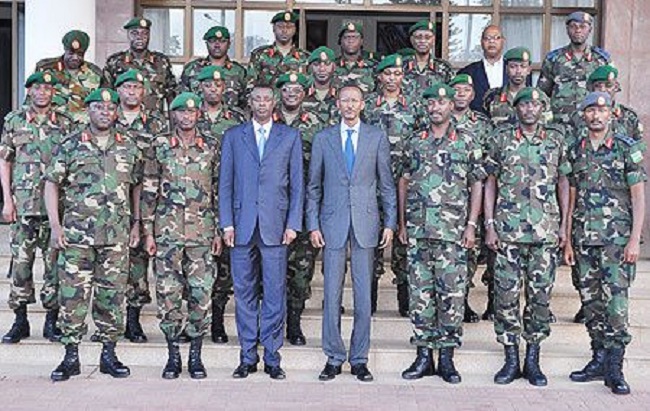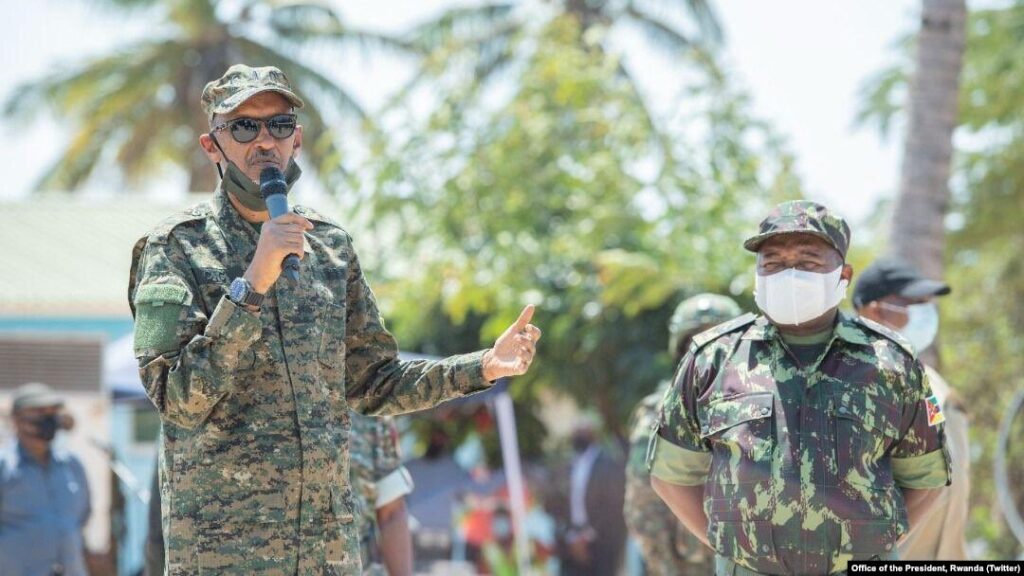
Introduction
On August 30, 2024, the Rwandan government announced a significant wave of dismissals within its military ranks, marking another episode in a series of purges that have taken place over the past few years. Over 200 military personnel, including high-ranking officers like Major General Martin Nzaramba and Colonel Etienne Uwimana, were relieved of their duties due to allegations of corruption, embezzlement, and severe ethical violations. This development raises important questions about the potential implications for security both within Rwanda and in the broader Great Lakes region.
Historical Context of Military Purges in Rwanda
Military purges are not uncommon in Rwanda. Over the past decade, President Paul Kagame’s administration has periodically dismissed large numbers of military personnel, often citing misconduct or corruption as reasons. For instance, in February 2017 and June 2023, nearly 200 soldiers were also dismissed under similar circumstances. These purges are typically framed as part of the government’s commitment to maintaining high standards within the military.
However, history has shown that such dismissals can have unintended consequences. Some of the soldiers who have been discharged in the past have allegedly joined rebel movements, particularly in the Democratic Republic of Congo (DRC). The porous borders and the ongoing conflict in eastern Congo provide a fertile ground for disgruntled ex-soldiers to find new allegiances, which can exacerbate regional instability.
Potential Impact on Rwanda’s Internal Security
Internally, these dismissals could have both stabilizing and destabilizing effects. On one hand, by removing elements of corruption and ethical breaches, the Rwandan government aims to strengthen the integrity and discipline of its military forces. This could enhance internal security by ensuring that only the most loyal and competent officers remain in positions of power.
On the other hand, the dismissal of such a large number of personnel, especially if they harbor grievances, could lead to the creation of dissident groups. Rwanda’s history and current dynamics suggest that these disgruntled former soldiers could become a security threat if they decide to engage in subversive activities within the country or seek to join external militant groups.
Regional Security Implications: The DRC and the M23 Connection
The broader regional implications of these military dismissals are particularly concerning given the ongoing conflict in the eastern DRC. The region has long been plagued by instability, with numerous armed groups operating with varying degrees of support from neighboring countries, including Rwanda.
One of the most prominent rebel groups in the area, the M23, has been accused of receiving backing from Rwanda, though Kigali has consistently denied these claims. The potential for dismissed Rwandan soldiers to join the ranks of groups like the M23 cannot be overlooked. Given their training and experience, these individuals could significantly bolster the operational capabilities of such groups, leading to an escalation in violence and instability in the region.
This scenario is particularly plausible given the precedent set by previous purges. Former Rwandan soldiers have been known to cross into the DRC and join rebel movements, driven by a combination of economic necessity and a desire for revenge or redemption after their dismissal. If the recent wave of dismissals follows a similar pattern, the DRC could see an influx of experienced fighters, further complicating an already volatile security landscape.
Rwanda’s Strategic Calculations
For Rwanda, maintaining internal security and a strong, loyal military is crucial, especially in a region as turbulent as the Great Lakes. President Kagame’s administration likely views these dismissals as a necessary measure to ensure that the military remains a disciplined and effective force. However, the potential for blowback—both internally and across the border—requires careful consideration.
Rwanda’s role in regional security dynamics is already under intense scrutiny, and any movement of dismissed soldiers into the DRC would likely exacerbate tensions between Kigali and Kinshasa, as well as with the international community. This could lead to increased diplomatic pressure on Rwanda, potentially affecting its strategic interests in




